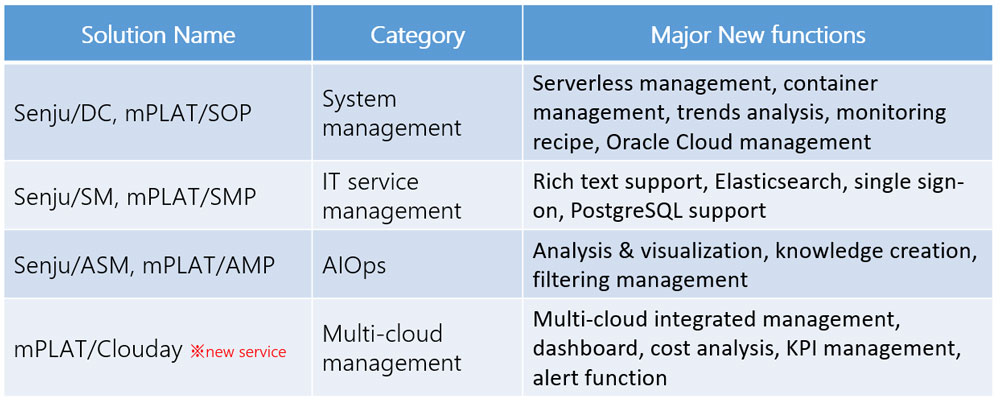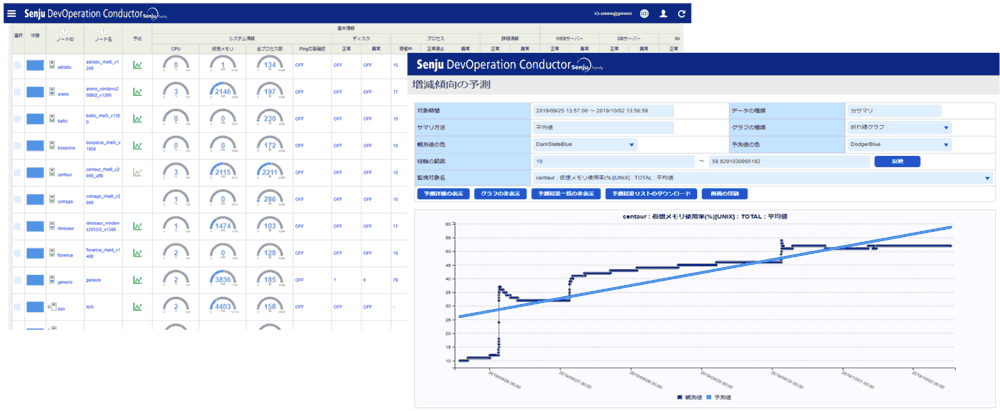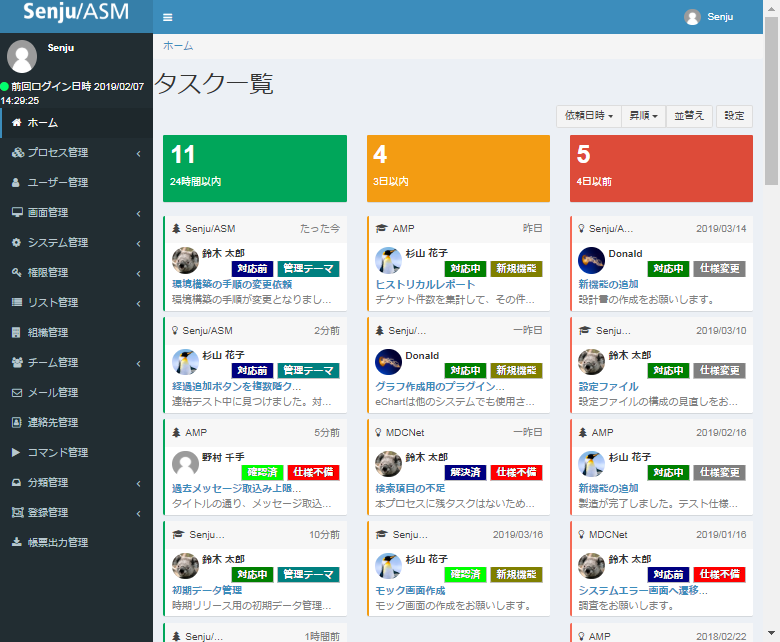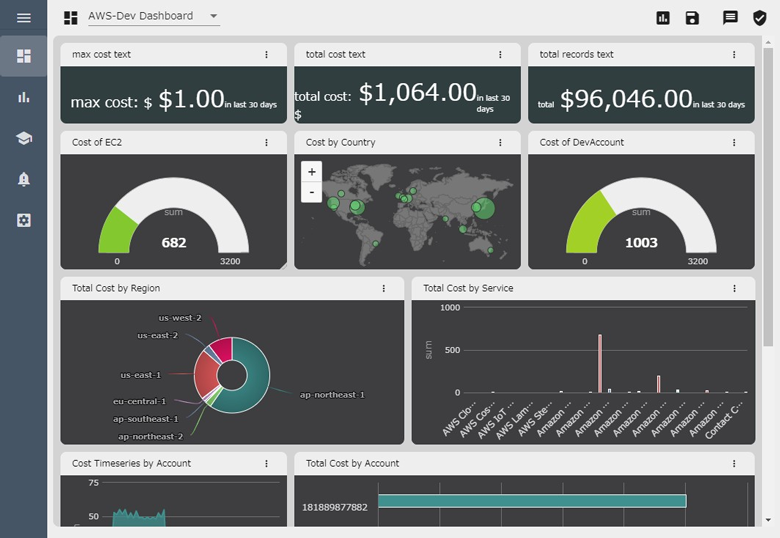TOKYO, October 23, 2019 - Nomura Research Institute, Ltd. (NRI) began offering Senju Family 2020, which is the new version of the tool used by companies to streamline the management of IT systems, and a new service mPLAT/Clouday, which supports multi-cloud management.
So far, NRI has been providing packaged Senju Family
1
solutions and mPLAT
2
cloud-service solutions as tools for executing operations and management of IT systems. However, in recent years, the field of information systems has been required to keep up with the latest technologies such as serverless architecture and container-type virtualization, and to use tacit knowledge to streamline system management. Moreover, with the progress of cloud computing, integrated management of the multi-cloud environment has become a challenge. The new version and service have been designed to resolve them.
The following functions have been enhanced in this version (see Table 1).
Table 1: Major New Functions of Each Solution

*Senju in Table 1 refers to Senju Family 2020
Enhancement of system management functions (Senju/DC, mPLAT/SOP)
SThe serverless environment’s job schedule management function and the container monitoring function have been implemented. In addition, monitoring history data is analyzed to detect signs of system failure and to analyze capacity management trends, thereby preventing system failure (see Fig. 1).
Fig. 1: Screenshots of Senju/DC, mPLAT/SOP trends analysis

Strengthening of autonomous management functions using AI (Senju/ASM, mPLAT/AMP)
Senju/ASM and mPLAT/AMP analyze operation-related accumulated risk information that leads to system failures and knowledge for dealing with failures using AI (Artificial Intelligence). They also inform operators of the information to be handled or automatically execute functions as necessary. In this update, the management screen has been updated and the task list displayed in a panel format so that the priority level and the status of each ticket (task) can be grasped at a glance (see Fig. 2). In addition, the frequency of keyword input and ticket reference are used to visualize signs of failure.
Fig. 2: Screenshot of the new function added to Senju/ASM, mPLAT/AMP

Multi-cloud integrated management function (mPLAT/Clouday)
The new service mPLAT/Clouday integrates and manages not only the usage status and failure status of the company’s multi-cloud environment but also the amount charged to each department (see Fig. 3). It also adopts an easy-to-customize microservice architecture 3 , thereby allowing flexibility in a rapidly changing multi-cloud environment.
Fig. 3: Screenshot of mPLAT/Clouday

In addition to these, NRI has also been enhancing a number of other functions in its system operation management solutions. For more information, please refer to the Senju Family website (http://senjufamily.nri.com/).
-
1
Senju Family: A set of system management tools developed and provided by NRI.
-
2
mPLAT: A cloud-type service that provides system management functions based on Senju Family.
-
3
Microservice architecture: A software development technique that divides software components into small individual functions.